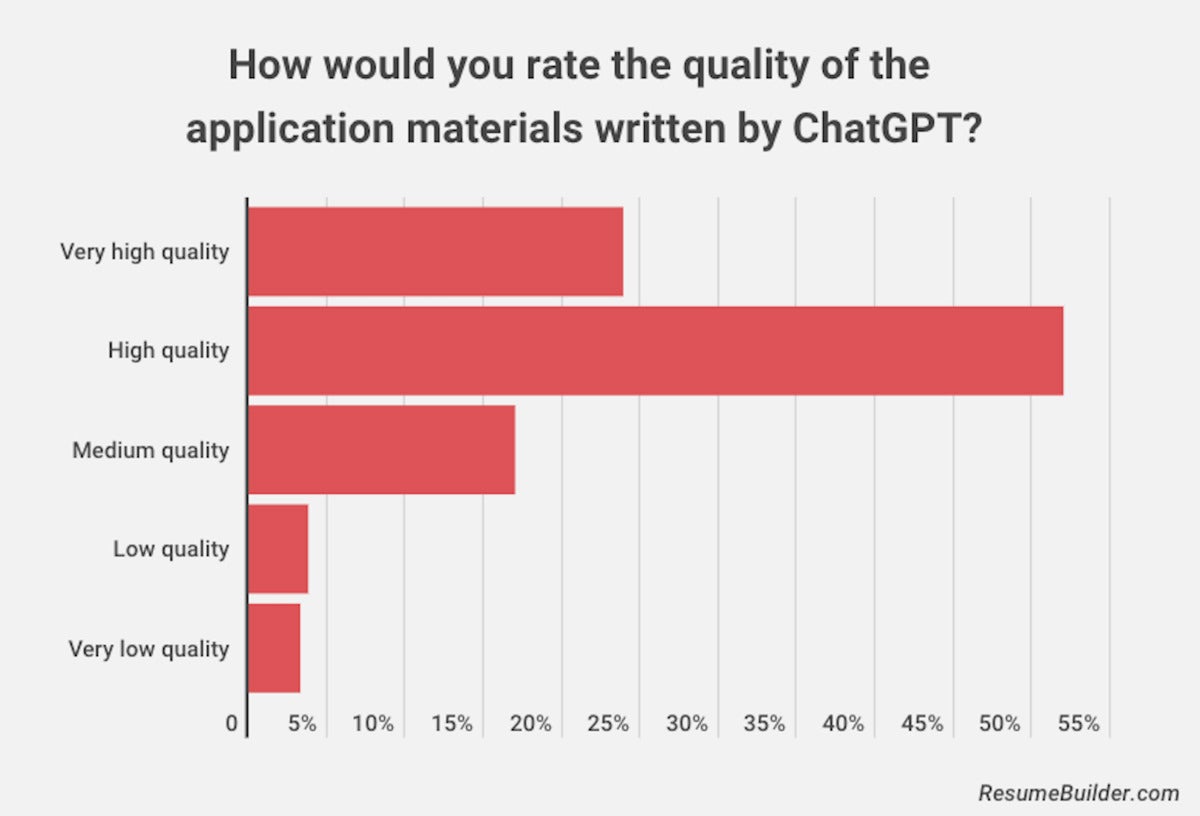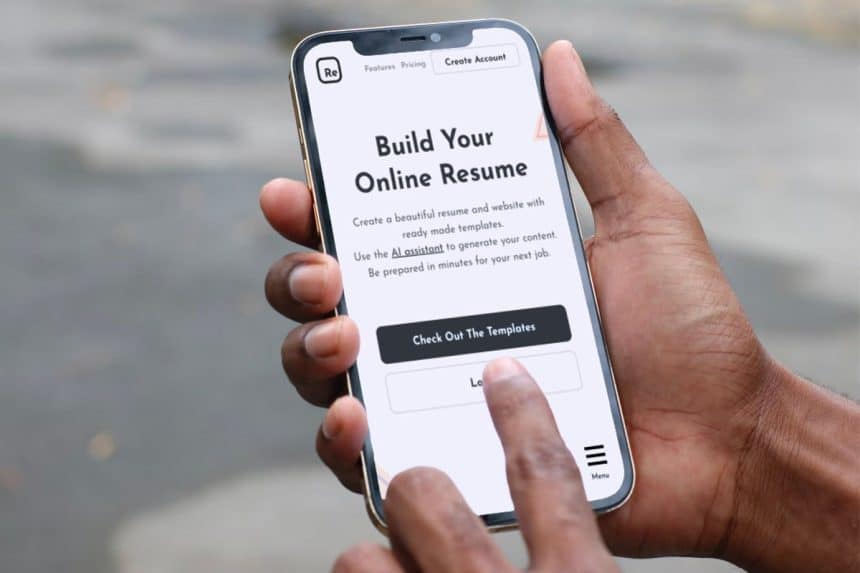Generative artificial intelligence (AI) technology is increasingly being used to create resumes and cover letters, and according to a new survey by Resume Builder, using a chatbot improves your chances of getting the job.
The online job site said nearly half of 2,153 job seekers surveyed earlier this month used ChatGPT to help write their resumes, their cover letter, or both, and the majority said it helped them land the job they wanted.
Nearly three quarters (72%) of those who used ChatGPT did so to write their cover letter, and just over half (51%) used it to write their resume.
The chatbot appeared better at grabbing the attention of prospective employers, as seven in 10 (69%) who used ChatGPT reported a higher response rate from companies.
 Resume Builder
Resume BuilderAdditionally, 78% of respondents said they got an interview when using job application materials written by ChatGPT, and 59% were hired after applying for a job using materials written by the chatbot technology from San Francisco-based OpenAI.
“Job seekers who use ChatGPT for their cover letters and/or resumes are really no different than those going to a resume writing service or using readily available templates and online tools,” Stacie Haller, Resume Builder’s chief career advisor, said in a statement. “Hiring managers know this when reviewing these documents and can likely tell if they were written by ChatGPT.”
Of course, correlation doesn’t equal causation, and it could be that users of ChatGPT for resume creation are simply more committed to their job hunt. But increasingly, external platforms powered by AI-generation models are being used to construct resumes, according to Hiten Sheth, director in the HR practice of research firm Gartner.
“Candidates — just like employers — are experiencing a fiercely competitive labor market,” Sheth said in an email reply to Computerworld. “To help gain competitive advantage, candidates might feel the need to utilize generative AI in order to bolster their resume, for example. It’s basically impossible for a recruiter to know if a resume was compiled using this technology — and recruiters are also not looking for it.”
The primary motivation for those who used ChatGPT is to save time, the survey found. Those benefits outweigh the risks for most job seekers, according to Resume Builder’s report.
An overwhelming majority (88%) of the total sample said they are somewhat or highly likely to continue using ChatGPT to write job application materials in the future. Four in 10 said interviewers weren’t able to tell when job candidates had used ChatGPT.
 Resume Builder
Resume BuilderHowever, when interviewers found out about the AI use, the response wasn’t always positive. Of the 40% of respondents who said an interviewer was aware they used ChatGPT to write application materials, 35% said they didn’t get the job because of it.
“The purpose of a resume is to get someone an interview,” Haller said. “From there, it’s up to the hiring managers to use other tools to evaluate a prospective employee during the process.”
 Resume Builder
Resume BuilderThree out of four of those surveyed said the materials written by ChatGPT were of high or very high quality. And 28% said they had to do only “a little bit” or “no” editing to the resumes and cover letters written by ChatGPT.
Foundation models, the technology underpinning OpenAI’s ChatGPT, have been around for years and are already used in natural language processing (NLP) chatbots. However, according to the latest Gartner 2023 Recruiting Innovations Bullseye, the use of chatbots is still in the experimental stage and is not considered a strategic recruiting goal for most organizations over the next few years.
Despite the apparent success of ChatGPT in hiring, there are broad concerns that the technology could be used to generate false information at scale, according to Sheth. AI-generated “hyperrealism,” coupled with how easy it is to use, accelerates the risk of false information spreading rapidly.
As a result, both users and organizations “must remain cautious when using generative AI, as failing to do so could result in legal and reputational consequences,” Sheth said via email.
“ChatGPT continues to generate buzz because it allows everyday individuals to directly interact with AI that is seemingly intelligent, understands questions, and helps accomplish specific tasks. However, the content this technology generates can sometimes be incorrect, as it depends on the prompt, task, or domain and the quality and quantity of training data leading to risks and misuse,” Sheth said.
A Resume Builder spokesperson said the organization can’t conclude that ChatGPT increases a respondent’s chance of being interviewed or hired, “but contrary to what some might believe, using ChatGPT may not hurt an applicant’s chances, either.
“I think there is a narrative out there right now that using ChatGPT is somehow cheating [or] misrepresenting yourself. But using it can definitely save time for job seekers and, according to the survey findings, most respondents didn’t experience a downside (only 11% said they believed they were denied a job because they used ChatGPT),” the spokesperson said in an email reply to Computerworld.



